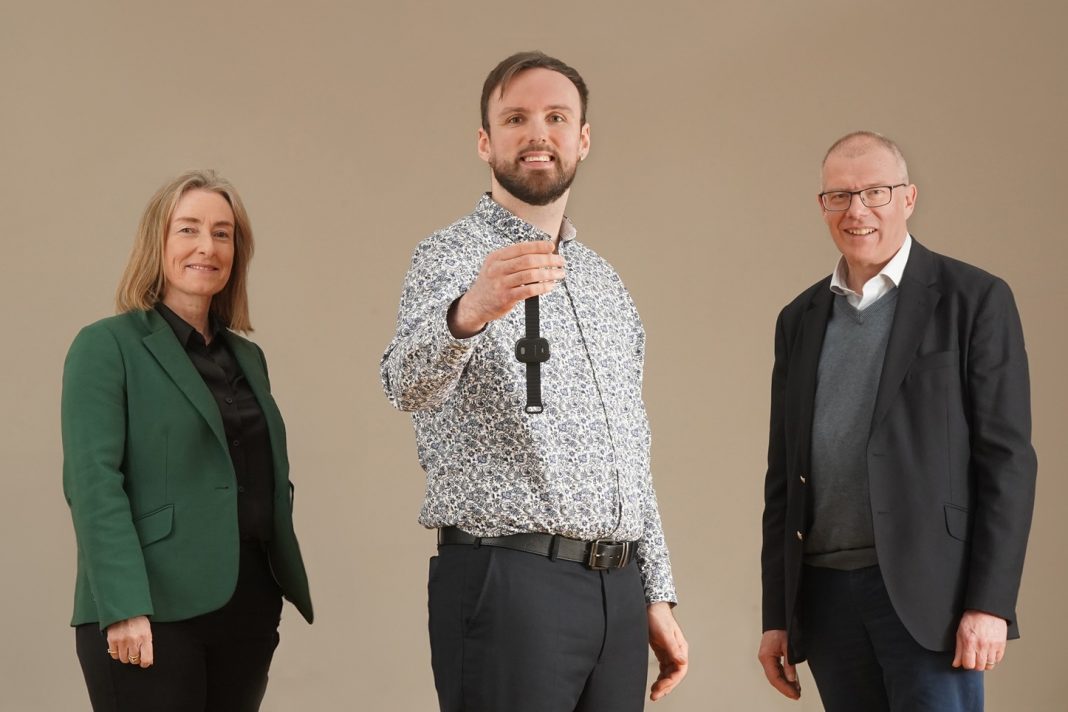Neupulse has secured funding to advance the world’s first wearable device aimed at tackling Tourettes Syndrome (TS) and other tic disorders towards commercialisation. Neupulse’s recently finalised working prototype stimulates the median nerve in the wrist, reducing the frequency of tics in individuals with TS, a condition that is thought to affect as much as 2 per cent of the world’s child population and 1 per cent of the overall population. Clinical trials in 2023 showed the Neupulse device can reduce tics by over 25 percentile.
Neupulse has secured a £2.5 million seed stage investment led by Scottish impact investor Eos Advisory, alongside a consortium including US-based investors, as Neupulse moves towards regulatory approval phase in the UK, Europe, and the USA.
Tourettes Syndrome is a neurological condition characterised by involuntary, repetitive movements and vocalisations known as tics. The causes of TS and other tic disorders remain unclear, but genetic and environmental factors are known to play a role. TS can cause significant pain and discomfort for those affected, through the hundreds of daily involuntary and often violent motions, in addition to impacting social integration in schooling, work, and wider society.
Paul Cable, CEO of Neupulse, said: “Tourettes Syndrome is a debilitating condition, severely so in many cases and to the detriment of quality of life, and our mission is to drastically reduce tics with an easy-to-use wearable device that will be transformative to the lives of affected individuals. Our device is an alternative to the current provision of treatment for TS, which is centred around medication and cognitive behaviour therapy. The goal is for Neupulse to be available to the TS community globally in the years ahead.”
Ana Stewart, Partner, Eos Advisory, said: “Eos was set up to back science-based companies and founders developing technologies that can positively impact the lives of people across the globe. Whilst we are focussed on Scottish startups, when one of our investors brought the amazing work of Neupulse to our attention we realised that there was a huge opportunity to add value, well beyond the investment, to help bring this device to market and improve the lives of people affected by TS and related conditions. What’s even more exciting, is how the nascent technology could be beneficial for many other neural conditions in the future.”



